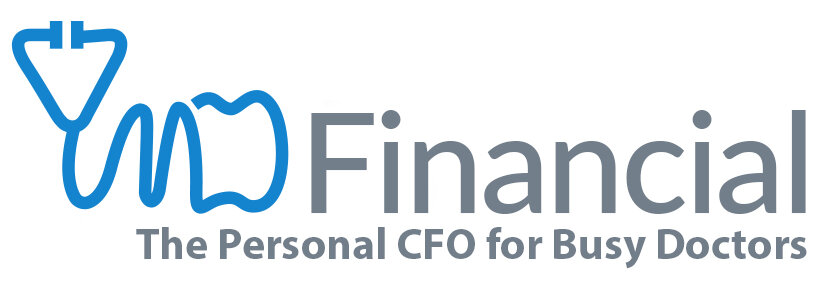5 Key Estate Planning Tips for Doctors [Podcast]
If you’re unfamiliar with the term, estate planning is the preparation of tasks to manage an individual's assets in the event of their death. This may seem like a far-off notion to some doctors, but here are some good reasons to start thinking about estate planning now:
Taking care of, and securing the financial futures of your children and grandchildren
Providing for your parents (which we see a lot, especially with our first-generation clients)
Donating to a charity/cause that is important to you
Delegating where specific heirlooms will go in your family
But the biggest reason? To save on estate taxes!
So if any of these reasons stick out to you, you should be thinking about estate planning! Today we will go over 5 items you need to put your estate plan together, along with some bonus info. Before we get too far, let’s review the differences between estate tax and inheritance tax.
Estate Tax vs. Inheritance Tax
Estate tax is a tax on the value of your entire estate at the time of your death. There is a Federal estate tax, and many states have their own estate taxes. These taxes are paid out from the estate, but these are all voluntary.
Inheritance taxes, also known as Income in Respect of a Decedent (IRD), refers to untaxed income that a decedent had earned or had a right to receive during their lifetime. IRD is taxed to the individual beneficiary that inherits this income.
However, IRD also counts toward the decedent’s estate for federal estate tax purposes, potentially drawing a double tax hit! Fortunately, the beneficiary may be able to take a tax deduction from the estate tax paid on IRD. The beneficiary must declare IRD as income for the year in which the person received it.* So speak with your advisor about possibly offsetting elsewhere so you do not jump to a higher tax bracket.
Moving back to the main items to consider when estate planning:
1. Where You Live
While the Federal estate tax threshold for a married couple, filing jointly, is currently at $22 Million dollars, whatever state you’re living in may have their own estate tax rates, and estate tax thresholds.
Though the current Federal threshold is high, that--along with the rate percentage, may be changing in the near future. This will impact a larger number of households.
If you are part of a couple where one of you is a non-US citizen, this estate tax may not apply to you, but always speak with your attorney to be sure you are getting the correct designations.
2. Estate Value
“You’re probably richer than you think!” Even if you have a negligible balance in your checking or savings account, there are many things that comprise your estate’s entirety, and increase its value:
Retirement accounts (many of these have not been taxed throughout your entire lifetime)
Life insurance death benefits
Personal belongings
Home value
You can avoid estate taxes by leaving 100% of your wealth to your spouse through unlimited marital deduction. Your children may, however, still be hit with estate taxes, after the surviving spouse passes.
3. Beneficiary Age
If your children are still minors at the time of your passing, you will absolutely need an estate plan put together. If not, your child (once they turn 18) will get a lump sum with no education or wisdom to save/use it appropriately. Scary thought! This is why we recommend a trustee to manage that money. The money can then be distributed for things like healthcare, education, and welfare.
Any funds left after the necessary expenses have been paid can be distributed in regular increments based on the age and rates you specify.
4. Beneficiaries on Your Accounts and Insurance Policies
The most important thing to note is that the beneficiary designations on your insurance policies and accounts will trump designations in your estate plan! Double-check these policies and review all of your accounts to make sure they line up with your estate plan. This is especially relevant if you’ve recently gone through a divorce/marriage.
5. Your Estate Plan Needs to “Move with You”
Another prompt to re-check your plan is if you are moving to a new state. Many of our doctor clients move across the country after residency, or when beginning a practice/new job.
State laws will vary when it comes to estates, probate, etc. and there are many nuances. This is why we’d recommend consulting with a local attorney so that everything with your estate plan runs smoothly!
Estate plans are a vital part of what we do for our clients, and are crucial for protecting your assets. If you do not have an estate plan or haven’t updated it lately, reach out to your financial advisors for attorney recommendations.
*https://www.investopedia.com/terms/i/income_respectof_decedent.asp
Listen on Apple Podcast, Google Podcast or Spotify
To hear the original podcast, check out the Brown University page here.
CONTACT US
1-888-256-6855
Remember that you can send us any questions or potential topics at: Info@MDFinancialAdvisors.com
Katherine Vessenes, JD, CFP®, is the founder and CEO of MD Financial Advisors who serve 500 doctors from Hawaii to Cape Cod. An award-winning Financial Advisor, Attorney, Certified Financial Planner®, author and speaker, she is devoted to bringing ethical advice to physicians and dentists. She can be reached at Katherine@mdfinancialadvisors.com.

![5 Key Estate Planning Tips for Doctors [Podcast]](https://images.squarespace-cdn.com/content/v1/561feb4ee4b0de0eb30d6d3c/1628608309025-IFC2NAD5CN3HSXZFDC4M/pexels-tima-miroshnichenko-5591247.jpg)

